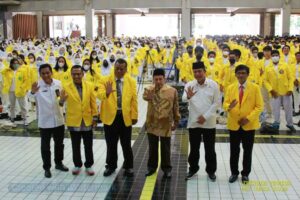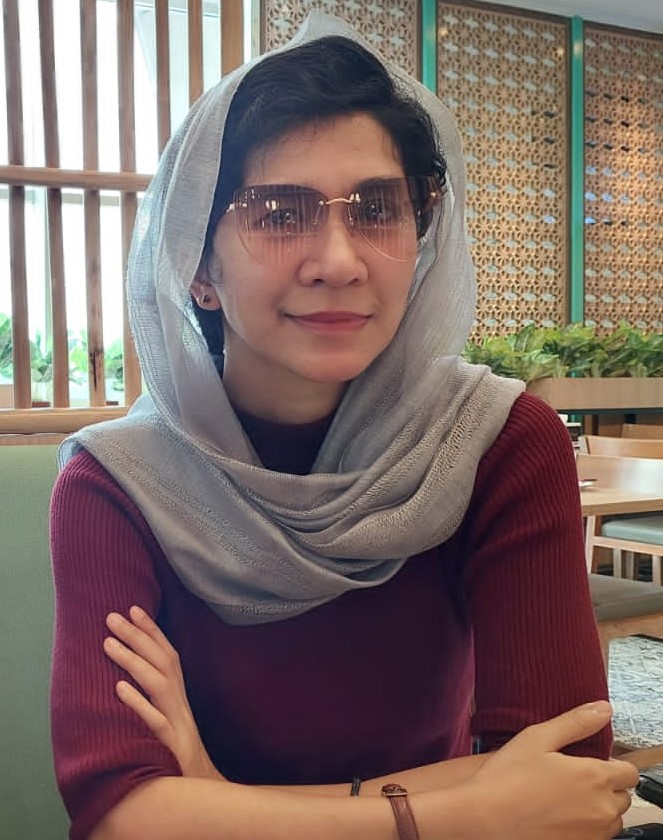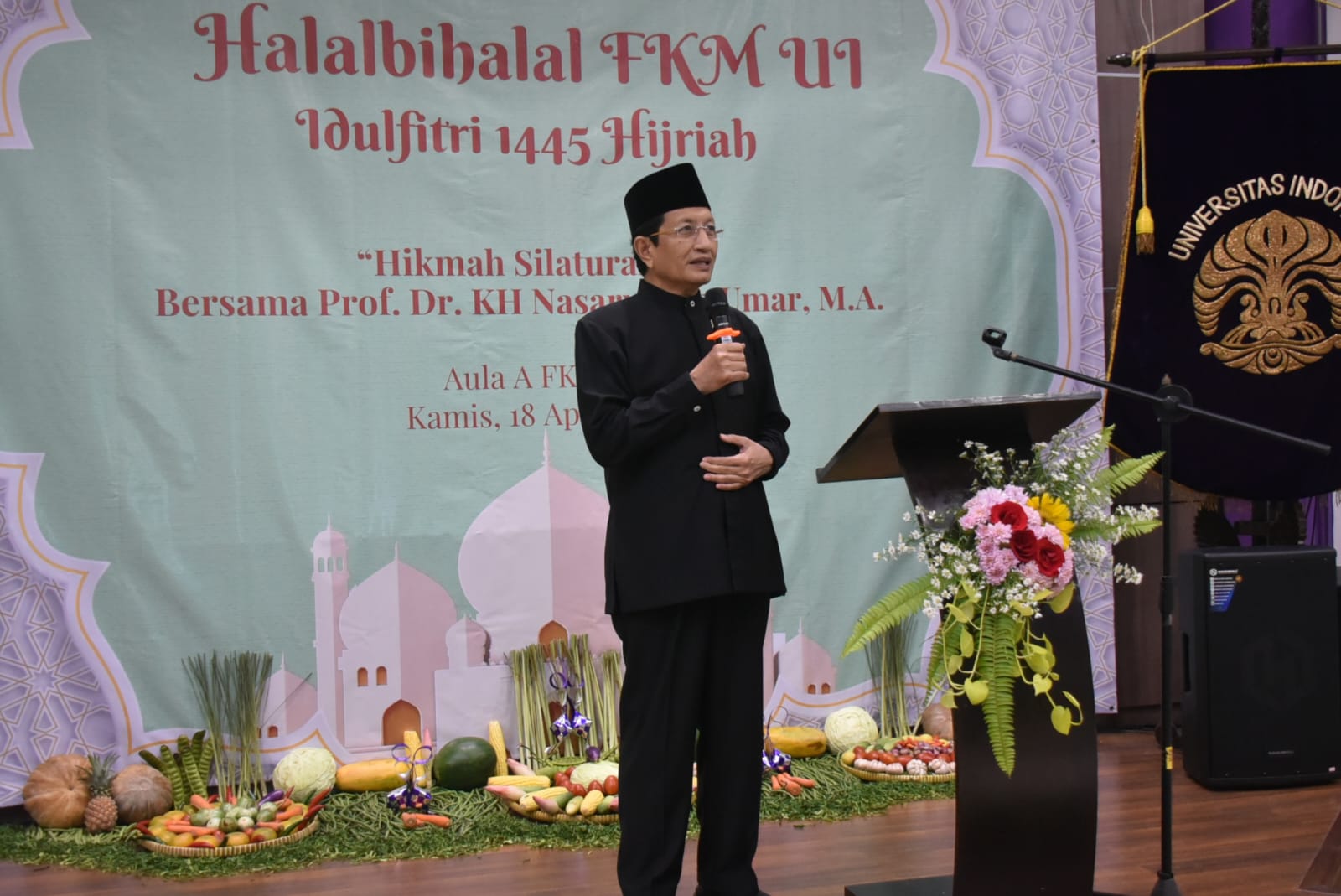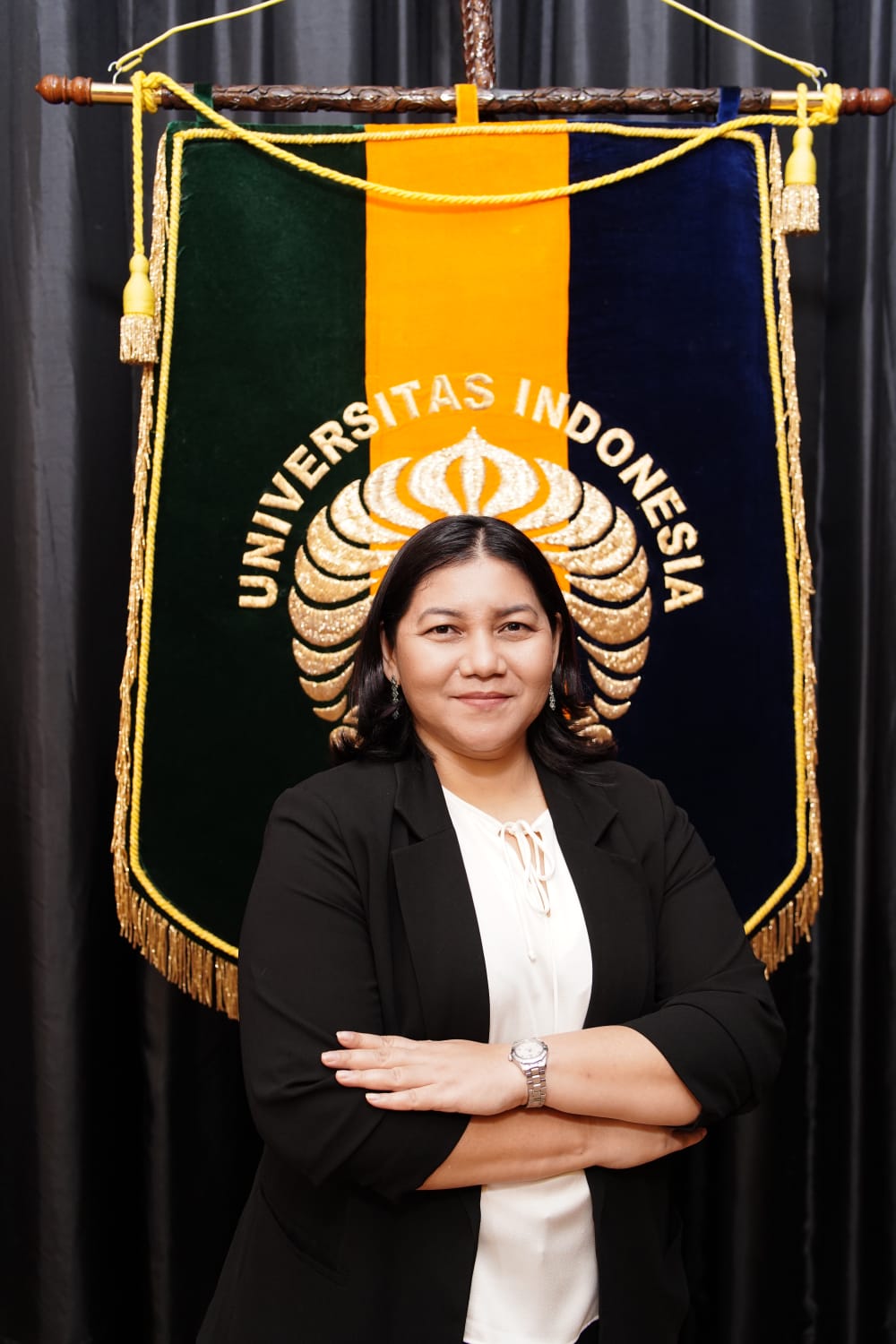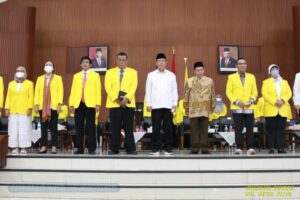
Head of the National Counterterrorism Agency (Badan Nasional Penanggulangan Terorisme, BNPT), Komjen Pol. Boy Rafli Amar, M.H., sees that the toughest challenge facing the world today is transnational ideology that impacts geopolitics at the global level. Transnational ideology is a global ideology that crosses national and state borders, which is not just a propaganda campaign or belief, but an understanding that is able to influence a country’s political policy. He made the remarks in front of the Universitas Indonesia (UI) class of 2022, at the Introduction to Campus Life for New Students (PKKMB) event, Monday (8/8), at Balairung UI.
According to Komjen Pol. Boy Rafli, transnational ideologies are contrary to the ideology of Pancasila. In the midst of the current information ‘tsunami’, transnational ideologies easily enter and spread to Indonesian society.
Along with the times, the existence of the internet is able to encourage Indonesian people to access information easily and quickly. Based on data presented by BNPT, Indonesia ranks fourth as the highest internet user country.
Of the approximately 274.9 million total population of Indonesia, 80% of users have social media accounts, 60% of which are millennials and generation Z who are easily influenced. In fact, not all social media accounts provide positive information, many even commit cyber crimes and contain transnational ideologies.

There are five characteristics of transnational ideology or terrorism, Boy said. First, it contradicts the constitution and state ideology. Second, it has specific ideological and political goals and is intolerant or radical towards the ideology of the Indonesian state. Third, this ideology justifies all means, including spreading content that is against the law. In addition, there is the use of religious narratives in recruiting young members, and always put forward intolerant narratives.
To prevent radicalism on campus, students need to understand the 4 Pillars of National Consensus of the Indonesian Nation, which include Pancasila, the 1945 Constitution, the Unitary State of the Republic of Indonesia, and Unity in Diversity. “From these four pillars, the character of national identity will be born, namely divinity, humanity, unity, democracy, justice, purity and multiculturalism, and patriotism. Therefore, it is important to understand and implement them in daily life,” Boy Rafli said.
From this activity, students are expected to be able to uphold the value of Unity in Diversity and understand the important role of Pancasila in building the character of the Indonesian national identity. Pancasila contains basic beliefs, namely a set of values that are systematically arranged and functioned as a basic reference in thinking, behaving, and acting, including in strengthening religious moderation. Religious moderation can be obtained through efforts to promote the life of mankind, uphold noble civilization, respect dignity, strengthen moderate values, realize peace, appreciate pluralism, and adhere to national commitments.
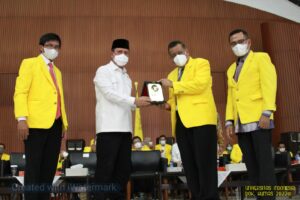
The event with the theme “UI Students are One because of Difference” is attended by the Chairperson of the UI Board of Trustees, Saleh Husin, S.E., M.Sc., and a Member of the Advisory Council of the President of the Republic of Indonesia, Habib Luthfi bin Yahya. On that occasion, Habib Luthfi said, humans carry two missions in life. First, carry out the duties and mandates of the parents’ efforts. Second, carry out the mandate of the teacher or lecturer during education.
“This challenge must be passed and answered by ourselves, namely how we make the most of our time. We are born from the forerunner of the intellectual, from the forerunner of the human being. That is, every human being is created in a state that is not stupid. It’s just that some people often think they feel stupid because of their lack of confidence,” said Habib Luthfi.
According to Habib Luthfi, the ancestors have passed on a lot of knowledge, insight, and a long history. Therefore, now is the right moment for the nation’s children to preserve and maintain the traditions and heritage of the archipelago to remain sustainable.
“UI students who are currently sitting at the Balairung UI or at home are the future successors of Indonesian history with the knowledge and knowledge they have. I hope that the brothers and sisters here are not easily provoked by deviant religious issues, which trap, and actually bring destruction to the Indonesian people. May we all always be in the truth according to the religious beliefs held,” said Habib Luthfi closing his presentation.

